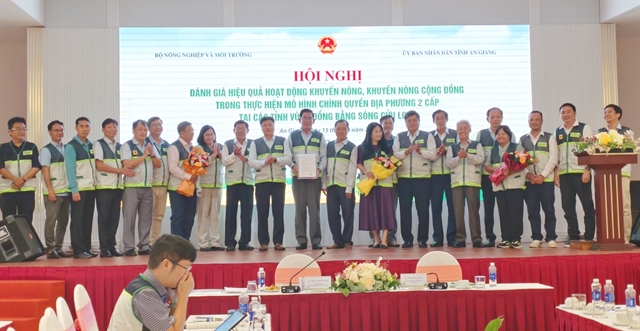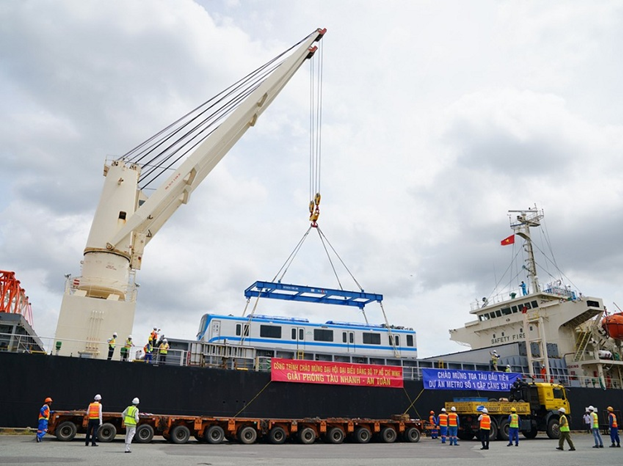 Society
Society


|
| The first members of the Mekong Delta Agricultural Experts Club during the debut on September 15. — VNA/VNS Photo |
AN GIANG — The Mekong Delta has taken a new step in strengthening its agricultural development with the launch of the Agricultural Experts Club.
This was announced by the National Agricultural Extension Centre during a regional conference held in Rạch Giá Ward, An Giang Province, on Monday.
The event focused on assessing the effectiveness of agricultural extension and community-based services under the recently implemented two-tier local government model.
The club is intended to be a forum connecting experts, managers, scientists, businesses, associations, co-operatives, and outstanding farmers.
By fostering exchanges of knowledge and experience, it will enable ideas and practical solutions to converge to take science, technology and market opportunities to farming households in the region.
According to the National Agricultural Extension Centre, the establishment of the club reflects an urgent need to bridge policy, science and production.
It is expected to play an advisory role in formulating agricultural development strategies for the delta, Việt Nam’s key rice, fruit and aquaculture hub.
These strategies will be designed to make full use of the region’s comparative advantages while adapting to global trends of green transition and sustainable growth.
The delta’s agricultural output has long been central to the national economy, with annual rice production valued at more than VNĐ120 trillion (US$4.7 billion) and fruit exports exceeding VNĐ65 trillion (US$2.5 billion).
Yet farmers continue to face challenges ranging from market volatility to climate change impacts.
By directly linking scientists and technical experts with the farming community, the club is expected to promote innovation and encourage farmers to shift towards modern practices that enhance productivity, quality and profitability.
It will also work with the extension network to improve farmers’ managerial and entrepreneurial capacities.
Training will focus on market access, business management and proactive adaptation, while also fostering an ecosystem of agricultural start-ups across the Mekong Delta.
In this way, experts will act as vital bridges between farmers and sources of knowledge, policy frameworks and commercial networks.
The formation of the club comes as the region undergoes restructuring of its extension services.
Before the reforms, the Mekong Delta had 14 provincial extension centres in its provinces and cities.
Under the new two-tier local government model, this has been streamlined to six.
At the district level, extension stations and agricultural service centres have been merged into provincial-level centres, which now manage regional hubs responsible for delivering both state management tasks and technical services to local communities.
Alongside this reorganisation, 1,013 community-based extension groups with more than 10,360 members remain active under the old model but will gradually be aligned with the new structure.
These groups are seen as crucial for maintaining close ties with farmers and ensuring that extension services remain rooted in local realities.
Hoàng Văn Hồng, deputy director of the National Agricultural Extension Centre, pointed out that the two-tier model offers an opportunity to make the system leaner and more effective.
He explained that the removal of intermediary levels would allow extension services to operate closer to the grassroots, providing timely support to farmers while broadening the scope of activities to encompass agriculture, farmers and rural development.
This would also open up space for greater collaboration with the private sector and international partners, he added.
The Ministry of Agriculture and Environment has underlined the importance of creating a coherent and unified extension system from central to grassroots levels with clear delegation and close coordination between the two tiers of local government.
The National Agricultural Extension Centre is also set to strengthen its field staff, ensuring that extension officers are present wherever there are farmers, and to promote public-private partnerships to mobilise additional resources for the benefit of rural communities. — VNS




